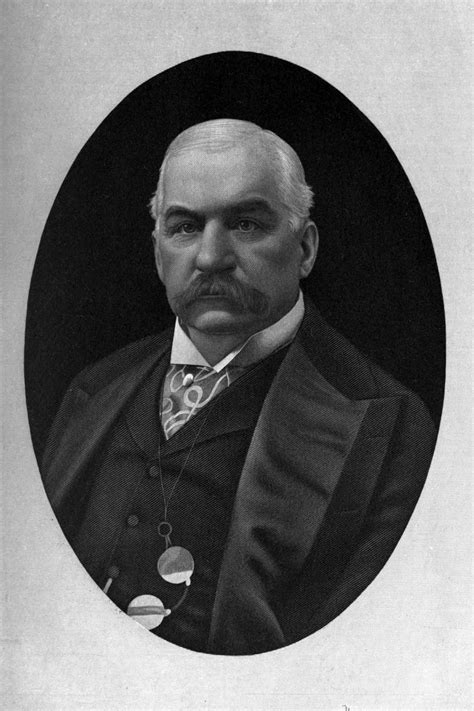Executive Summary
J.P. Morgan, a prominent figure in the late 19th and early 20th centuries, has been a subject of debate regarding his legacy. Some historians portray him as a “robber baron” who amassed wealth through unethical practices, while others view him as a “captain of industry” who played a vital role in the development of the American economy. This article examines both perspectives, evaluating Morgan’s actions and their impact on society.

Robber Baron: Criticisms of J.P. Morgan
Monopoly and Market Dominance
Morgan wielded immense power due to his control of various industries. He established the U.S. Steel Corporation in 1901, which became the largest steel producer in the world, giving him a near-monopoly in the industry. Morgan also had significant influence in the banking, railroad, and shipping sectors, which allowed him to manipulate prices and stifle competition.
Unethical Business Practices
Morgan’s business dealings have been characterized as predatory. He often acquired smaller companies at undervalued prices, forming monopolies that drove up prices for consumers. In the Panic of 1907, Morgan forced insolvent banks into receivership, gaining control of their assets at a discount. These practices raised concerns about his willingness to exploit financial crisis for personal gain.
Political Influence
Morgan’s wealth and power extended into the political arena. He had close ties to politicians and used his influence to shape legislation favorable to his business interests. For instance, the Aldrich-Vreeland Act of 1908, which reformed the banking system, was largely influenced by Morgan’s views.
Captain of Industry: Contributions of J.P. Morgan
Industrialization and Economic Growth
Morgan played a pivotal role in the industrialization of the United States. His mergers and consolidations created large, efficient corporations that could produce goods at lower costs, fostering economic growth. U.S. Steel Corporation, for example, standardized steel production and made it more accessible for various industries.
Stabilization of the Financial System
During the Panic of 1907, Morgan intervened to stabilize the financial system. He organized a group of bankers to inject funds into failing banks, preventing a wider financial collapse. His actions were crucial in restoring confidence in the banking system and averting an economic crisis.
Philanthropy and Social Impact
Morgan dedicated significant resources to philanthropy. He established institutions such as the Metropolitan Museum of Art and Morgan Library & Museum, enriching cultural life in the United States. He also supported higher education, founding the J.P. Morgan Chase Bank scholarship program.
Evaluating the Legacy
Assessing J.P. Morgan’s legacy requires balancing his contributions to economic development with his questionable business practices and political influence.
Positive Impact
- Accelerated industrialization and economic growth
- Stabilized the financial system during the Panic of 1907
- Supported arts and education through philanthropy
Negative Impact
- Created monopolies and stifled competition
- Engaged in unethical business practices
- Exercised excessive political influence
Conclusion
J.P. Morgan’s legacy is complex and multifaceted. He was both a shrewd businessman who amassed enormous wealth and a figure who played a significant role in shaping the American economy. While his business practices were questionable at times, his contributions to industrialization and financial stability cannot be overlooked. Ultimately, the debate over whether Morgan was a robber baron or captain of industry reflects the tension between economic progress and the need for ethical conduct in business.
FAQs
- How did J.P. Morgan create monopolies?
By acquiring smaller companies at undervalued prices and merging them into larger entities, such as U.S. Steel Corporation.
- What were some of Morgan’s unethical business practices?
Forcing insolvent banks into receivership to gain control of their assets at a discount.
- How did Morgan influence politics?
Through close ties to politicians and the use of wealth to shape legislation favorable to his business interests.
- What were Morgan’s major philanthropic contributions?
Establishing cultural institutions like the Metropolitan Museum of Art and supporting higher education through the J.P. Morgan Chase Bank scholarship program.
- Why is J.P. Morgan’s legacy controversial?
Due to the tension between his contributions to economic progress and his questionable business practices.
- Was Morgan a robber baron or captain of industry?
Both perspectives have validity, acknowledging both his role in industrialization and ethical concerns.
- How did Morgan’s actions affect society?
His monopolies raised consumer prices, but his role in stabilizing the financial system during the Panic of 1907 prevented a wider crisis.
- What are the lessons learned from Morgan’s legacy?
The importance of balancing economic progress with ethical conduct, and the need for regulations to prevent monopolies and excessive political influence.
